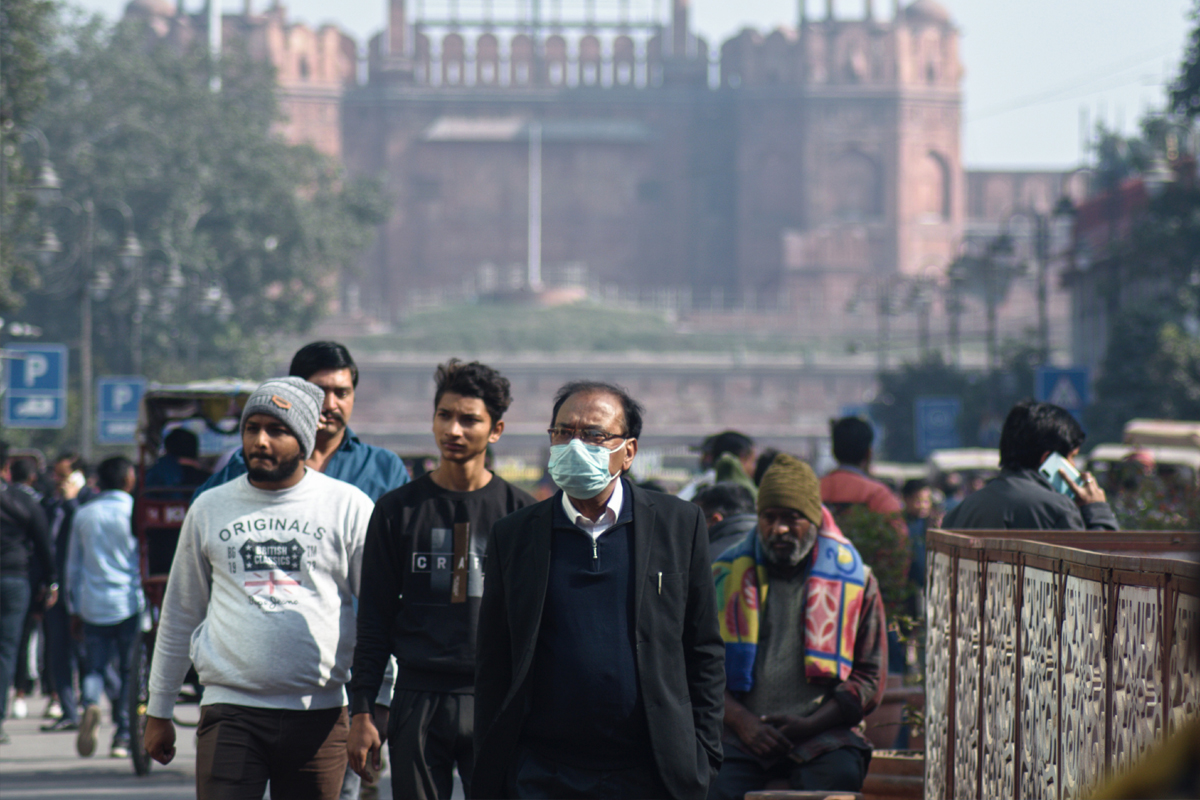As India registered 7830 fresh cases of COVID-19, top health experts sounded the warning bell, saying that the country needed to be ‘extremely cautious and watchful’.
According to Union Health Ministry COVID data, India’s active caseload currently stands at 40,215. The country also saw 16 deaths, including five reconciled deaths in Kerala.
On April 11, India recorded 5676 fresh coronavirus infections, while the active case load increased to 37,093. Twenty one deaths, along with six reconciled deaths, were reported.
According to health experts, the pattern with which cases are increasing each day has been noted as being similar to that of the normal behaviour of coronaviruses.
The additional mutation of virus spike protein attached to XBB.1.16 infects human cells and has the potential to make the virus more infectious, the experts said.
Dr Chandrasekhar Singha, a senior consultant in pulmonology and respiratory medicine at Madhukar Rainbow Children’s Hospital, told The New Indian, “The variant of COVID-19 infection is rising rapidly. Because of an additional mutation of virus spike protein, which is attached to and infects human cells. It has the potential to make viruses more infectious and cause more severe disease.”
“Mutations that seem concerning, in theory, are not always concerning in real-life situations due to the highly complex nature of population immunity. Especially after multiple doses of COVID vaccination and multiple clinical and subclinical infections. Though immunity weans off over time, it can still provide some immune protection,” Dr Singha added.
“It is very early to say how this new variant will fuel hospitalisation and death due to COVID-19. Upwards trends in such a matrix take weeks to materialise,” the senior health expert observed.
Speaking about the areas of concern with regard to the new mutation, Dr Singha said, “I am particularly concerned about the new mutation (K478R), which may make the variant better at overcoming antibodies from previous infection and vaccination, making people sicker and spreading in general.”
“It is not safe to assume that COVID antiviral Paxlovid, vaccines and tests continue to work as viral evolution continues. It is important to stay vigilant,” he added.
Despite the concern, so far, there have been no significant hospitalisations or ICU admissions, and the death rate has not yet risen.
Dr Ravi Shekhar Jha, Director and Unit Head Pulmonology, Fortis Escorts Hospital Faridabad, observes that the way case numbers have doubled from 1300 on March 23 to 3100 on March 31 should not be viewed lightly.
“It is an Omicron variant similar to XBB.1.5 but with an additional mutation in the spike protein. It has a limited growth advantage. However, the initial trends suggest an immune escape among Indians. The number of deaths so far is not much, not more than omicron, but persistent progressive infection suggests immune escape,” Dr Jha observed.
Dr Jha says although India is confident because of hybrid immunity, patients with advanced comorbidities, elderly people, morbidly obese immunocompromised individuals, and patients with immunosuppressive therapy and systemic steroid therapy need to be careful.
“Even mild COVID can lead to lingering symptoms called long COVID,” says Dr Jha.
Experts believe that watching virus behaviour for another two weeks might be a good strategy. “Whatever the scenario of damage is, it is likely to be less than the first two waves, but it would be prudent to further minimise it,” health experts advised.
However, health experts pointed out that the lackadaisical attitude of people to stick to COVID-appropriate behaviour is in a sorrowful state.

